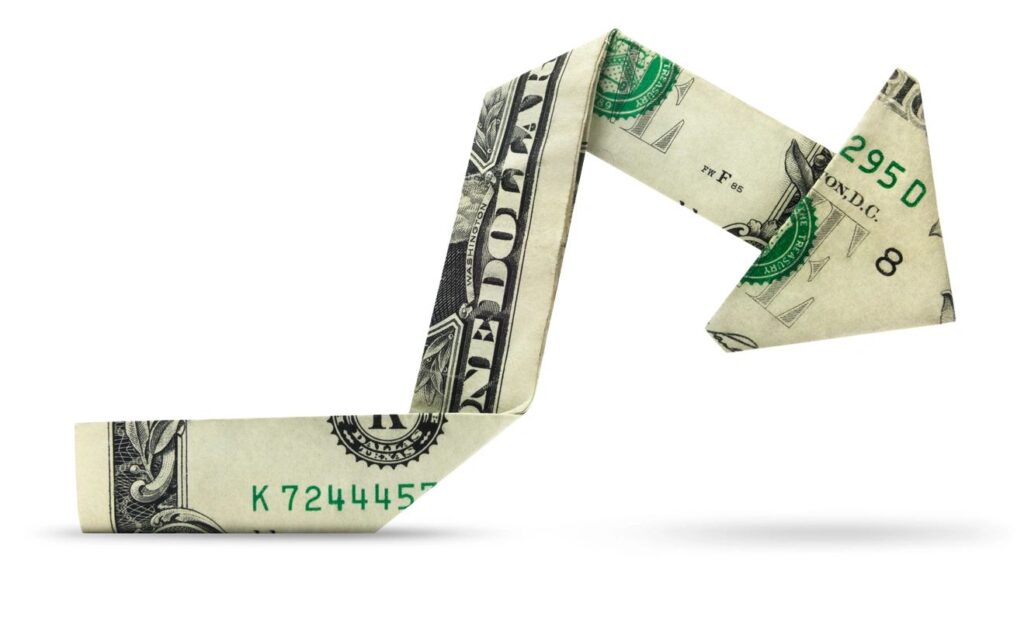Today’s high inflation rates point to the risk of an impending recession. If you haven’t prepared your finances for the downturn the economy might make, it’s time to get yourself ready. Here are five simple ways to prepare.
Here are five ways you can prepare for a recession
1. Save an Emergency Fund
An emergency fund covers you if you lost your job or were unable to work. A fully funded emergency account should have three to six months of expenses. So if you were to lose your job or be unable to work, you’d have a few months of bills covered while you figure out what to do next.
Don’t get overwhelmed at the thought of needing thousands of dollars saved. Instead, save as much as you can each month starting now. Don’t worry if it’s only a small amount. Open a separate savings account and deposit the money there, eliminating the temptation to spend it.
2. Pay your Credit Card Debt Off
Each time the Fed increases interest rates, it costs you more to carry consumer debt. If you have credit cards with anything but a 0% APR, pay them off as quickly as you can. Stop making the minimum required payments and pay the balance down as soon as possible.
Avoiding credit card debt altogether is best, especially when preparing for a recession. Instead, create a budget, so you live within your means, and don’t use a credit card to maintain your current lifestyle if your income decreases.
3. Trim your Expenses
Revisit your budget and see where you can cut back. For example, shop around for cheaper insurance, cell phone, and internet plans. Also, see what you can cut out of your budget completely. For example, cancel subscriptions you’re paying for that you don’t use.
Common expenses to cut out of your budget to increase savings include:
- Gym memberships
- Eating out
- Entertainment
- Online subscriptions
- Impulse shopping
4. Stay Invested
It’s a common thought to jump ship when there’s an impending recession but stay invested when saving for long-term goals. Of course, you might want to protect any money you’ll need immediately in conservative investments such as high-yield savings accounts, money market accounts, or short-term CDs. But, anything meant for ten years or longer, especially retirement, leave and let it ride out the storm.
5. Find Ways to Earn More Income
Everyone can have a side hustle or passive way to earn income. However, don’t rely on one income stream because what if you lose it during the recession? Instead, increase your income by adding side hustles and gigs to give yourself multiple income streams and a chance to save more money to protect you in the impending recession.
Final Thoughts
Thinking of a recession can be scary, but there are ways to protect yourself. Even though no one knows what might happen in the next few months, prepare yourself now. Cut back on your expenses, save as much money as possible, revisit your budget, and pay your debts down as much as possible.
You can survive whatever the economy throws your way. Schedule a free consult today to have a coach help you develop a personalized action plan for your financial journey.
